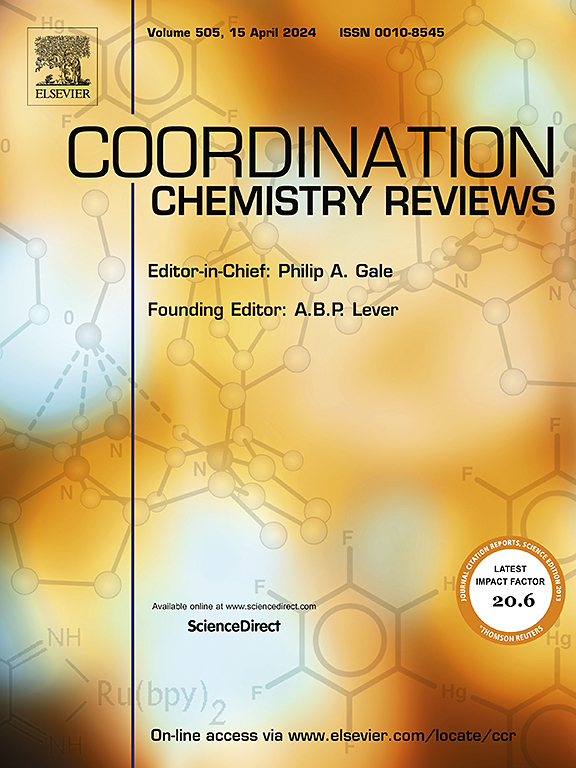高效氧还原反应的气固液三相界面工程研究进展
IF 20.3
1区 化学
Q1 CHEMISTRY, INORGANIC & NUCLEAR
引用次数: 0
摘要
氧还原反应(Oxygen reduction reaction, ORR)是一种复杂的电化学反应,是先进的能量存储和转化技术的关键,它是一个以表面为主导的过程,包括气固液三相界面上的电子传递、质量扩散和反应物/生成物的吸附/解吸等必不可少的几个步骤。近年来,基于电极结构的优化设计和电催化剂结构的可控,在调节界面微环境方面取得了重大进展,电催化性能得到了提高,对ORR的基本原理也有了深入的认识。本文从电极和催化剂的一般设计原则、三相界面上ORR机理的实验和理论探索等方面综述了ORR三相界面工程研究的最新进展。本文重点介绍了高效ORR的三相界面工程,介绍和讨论了最新进展。此外,它还解决了挑战,并对该领域未来的发展方向进行了深入的探索。本文章由计算机程序翻译,如有差异,请以英文原文为准。
Advances in gas-solid-liquid triple-phase interface engineering towards efficient oxygen reduction reaction
Oxygen reduction reaction (ORR) as a key electrochemical reaction for the advanced energy storage and conversion technology, is a complex surface-dominated process comprising several indispensable steps of electron transfer, mass diffusion and adsorption/desorption of reactant/products at the gas-solid-liquid triple-phase interface. In the past few years, great processes have been made in regulating the interface micro-environment based on the optimal design of electrode structure and controllable construction of electrocatalysts, resulting in the boosted electro-catalytic performances and the in-depth understanding of the underlying fundamentals of ORR. In this review, the most recent progresses in the triple-phase interface engineering for ORR have been reviewed in a comprehensive manner by emphasizing the issues such as the general design principles of electrode and catalyst, and the extensive ORR mechanism exploration at the triple-phase interface both experimentally and theoretically. This review focuses on the advanced topic of triple-phase interface engineering for efficient ORR, presenting and discussing the most recent advancements. Additionally, it addresses the challenges and offers an in-depth exploration of the prospective future directions in this field.
求助全文
通过发布文献求助,成功后即可免费获取论文全文。
去求助
来源期刊

Coordination Chemistry Reviews
化学-无机化学与核化学
CiteScore
34.30
自引率
5.30%
发文量
457
审稿时长
54 days
期刊介绍:
Coordination Chemistry Reviews offers rapid publication of review articles on current and significant topics in coordination chemistry, encompassing organometallic, supramolecular, theoretical, and bioinorganic chemistry. It also covers catalysis, materials chemistry, and metal-organic frameworks from a coordination chemistry perspective. Reviews summarize recent developments or discuss specific techniques, welcoming contributions from both established and emerging researchers.
The journal releases special issues on timely subjects, including those featuring contributions from specific regions or conferences. Occasional full-length book articles are also featured. Additionally, special volumes cover annual reviews of main group chemistry, transition metal group chemistry, and organometallic chemistry. These comprehensive reviews are vital resources for those engaged in coordination chemistry, further establishing Coordination Chemistry Reviews as a hub for insightful surveys in inorganic and physical inorganic chemistry.
 求助内容:
求助内容: 应助结果提醒方式:
应助结果提醒方式:


